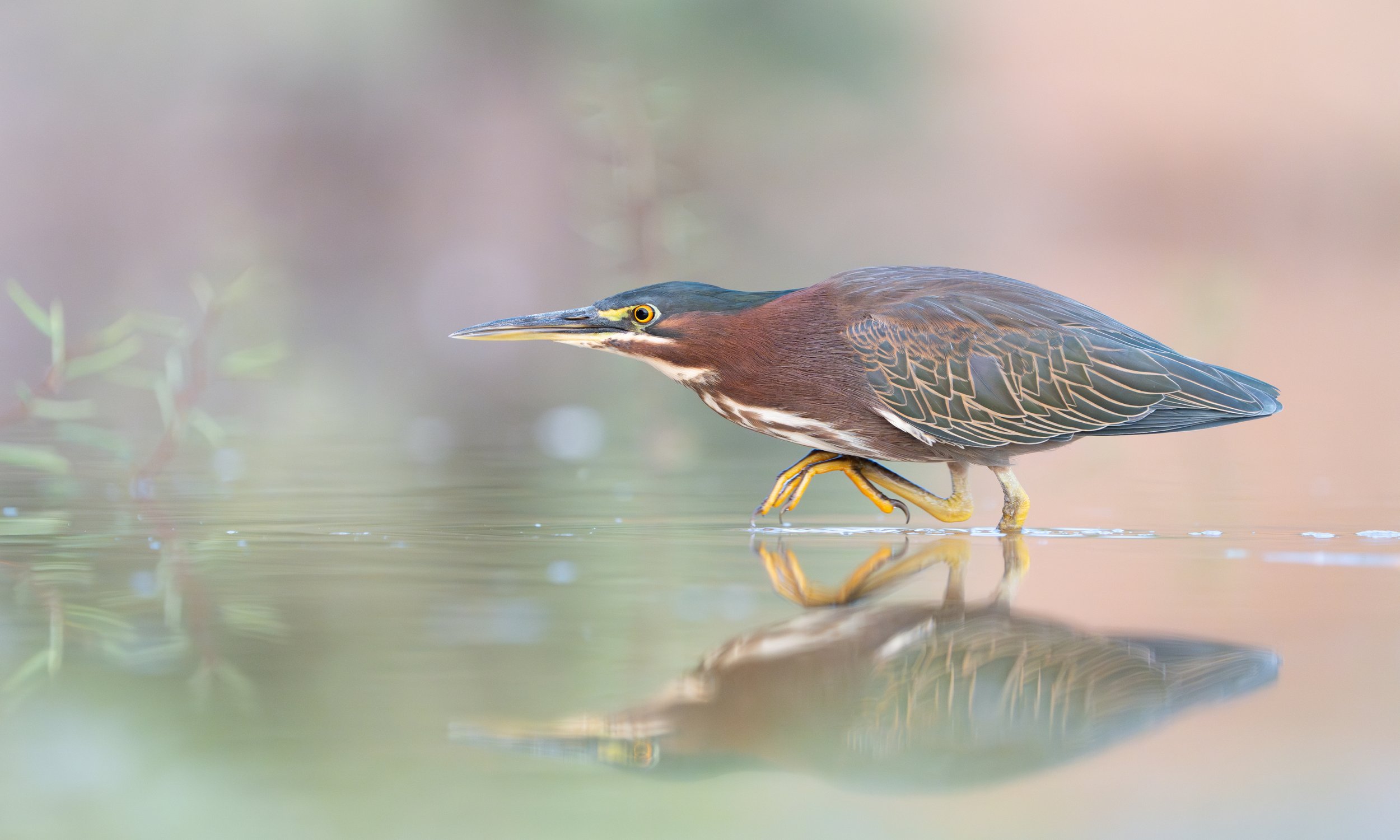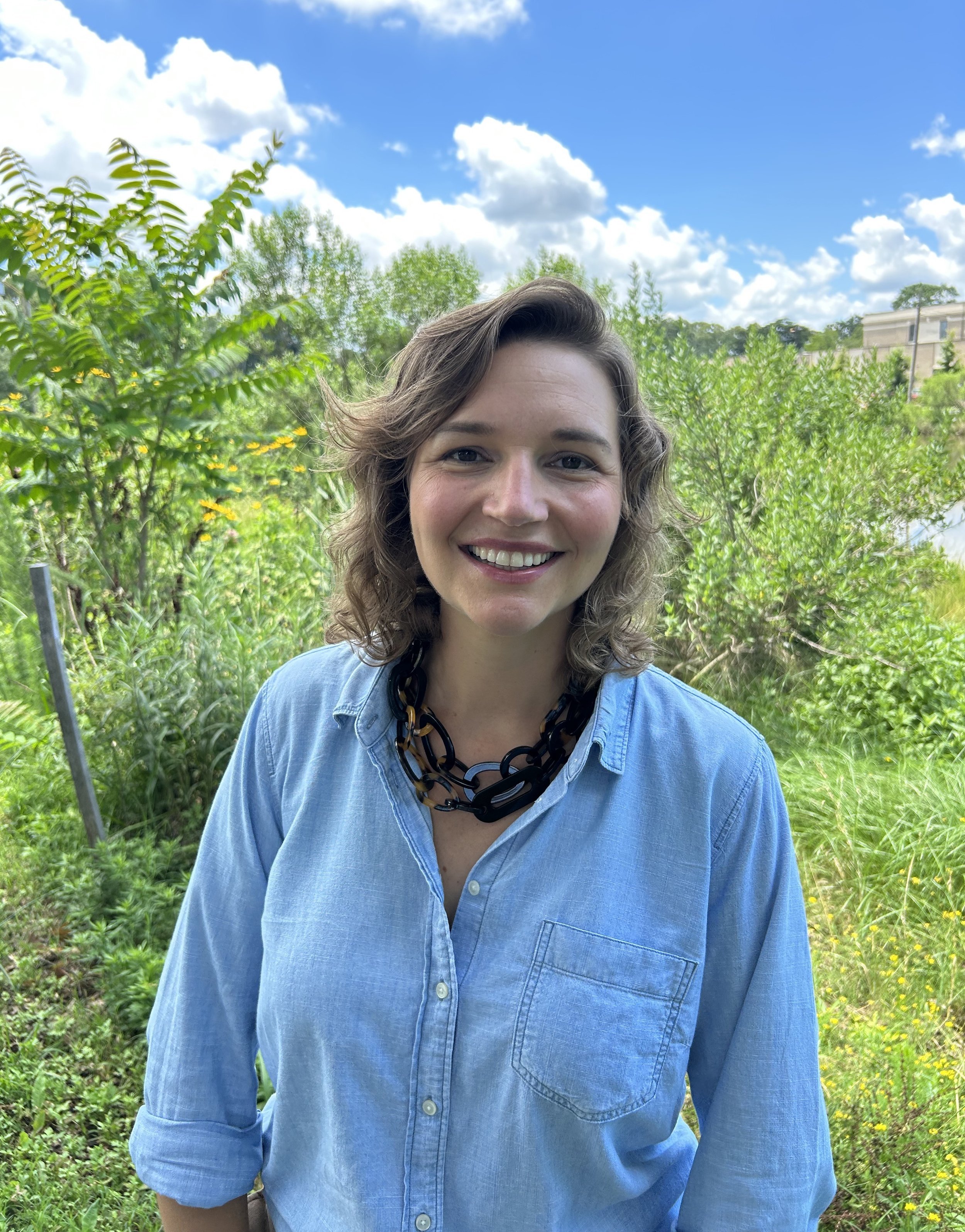
Photo Credit: Joshua Hogan, Cornell Lab of Ornithology | Macaulay Library
Message from Mary-Carson Stiff, Executive Director
Welcome to Wetlands Watch! You may notice that we're not your typical nonprofit organization. That's by design. When your mission involves addressing the adaptation challenges associated with rising seas and other climate change impacts, being atypical is exactly what you need to be.
Our mission centers on wetlands protection, natural resource preservation, and climate change adaptation because these things are inseparably connected. The increasing flooding events and constantly shifting shorelines we witness today are clear evidence of the changes impacting our world. Safeguarding these wetlands that are on the forefront of climate change is a key part of Virginia’s adaptation strategy. Wetlands and shoreline buffers provide natural resilience against rising seas and storms, protecting our communities, and ensuring that Virginia’s ecosystems remain vibrant for future generations.
We protect Virginia’s wetlands and shorelines so they can in turn protect us.
As you explore our website, you'll notice that we have a lot going on. This also is by design. With respect to public policy, we engage policymakers at the local, state, regional, and federal levels. We help ensure that local governments have the technical support they need to keep communities safe and healthy in the face of climate change challenges, especially those communities that have not been helped in the past. We inspire the public through our crowd-sourced data collection events that have made it into the Guinness Book of World Records.
Adaptation challenges are all around us. Because they are escalating, we need to escalate with them. Rooted in activism and public policy savvy, we approach both recognized and emerging challenges with the same pioneering spirit that started Wetlands Watch twenty-five years ago. When we see a need, we try to fill it.
Our team members are recognized professionals in a wide variety of fields, including stormwater management, hydrology, floodplain management, planning, law and policy, workforce development, education, organizational development, and horticulture. We serve on boards and contribute to professional organizations, bringing diverse, informed, and multifaceted perspectives to the problems we address. In this way, we meet the complexity of climate change adaptation with a wide range of experience, education, and technical knowledge.
We view climate change as the defining challenge of our time, an unprecedented, far-reaching threat that disrupts ecosystems, threatens communities, and is in the process of reshaping our entire way of life. The scale and complexity of this crisis requires us to think and act differently, embracing innovative strategies that address both immediate impacts and long-term resilience. Navigating this uncharted territory means acknowledging the uncertainties and complexities of a rapidly changing world, where rising seas, extreme weather events, and shifting shorelines demand proactive and new responses.
Because no single organization or community has all the answers, collective action is our strongest strategy. By collaborating across sectors, leveraging diverse expertise, and engaging with communities on the front lines, we at Wetlands Watch believe that we can develop some of the many needed adaptive solutions to protect our natural resources and ensure a safe future for all Virginians. That’s the commitment we’re making at Wetlands Watch—to be a catalyst for change, a pioneer of solutions, and a partner to others in this fight.
With respect to our present challenges, here’s what we know:
It's flooding too much from high tides and excessive rainfall.
Virginia's tidal wetlands, among the most productive ecosystems in the world, are being lost at an alarming rate because they cannot grow at a rate that outpaces sea level rise.
We're losing safe land to live in our tidal and riverine areas. We need to figure out where people will go when it's no longer safe.
We need more natural systems everywhere to capture water and slow it down, preventing it from overwhelming our undersized and overburdened systems.
We need a stable, trained workforce to meet the growing need for living infrastructure practices, and we don’t have it yet. We need to build that workforce quickly and maintain it.
Adaptation work is challenging and will only become more challenging in the years ahead, so all of us in this space must work together to leverage capacity and resources.
Natural resources must be protected and remain central in our adaptation planning and response.
Tidal wetlands are among the most productive ecosystems in the world. Without them, 90% of Virginia’s fish species cannot survive.
Not all people will adapt equally. The sooner we figure out how to build equity into solutions, the better off all adaptation efforts will be.
Local governments are on the front lines of this issue. They are tasked with an immense duty and will need all of our help to get it done right. Show up at meetings and make your voice heard. Local action is consequential action.
We do not yet have the laws or policies in place to deal effectively with sea level rise and climate change. We will only develop them with political will and public support.
The challenges before us are formidable, and the work serious, but that doesn’t mean that this work cannot be pursued with joy and purpose. We invite you to join us–in partnership and with your support—so our impact can grow, helping more communities prepare for today’s challenges, and tomorrow’s.
